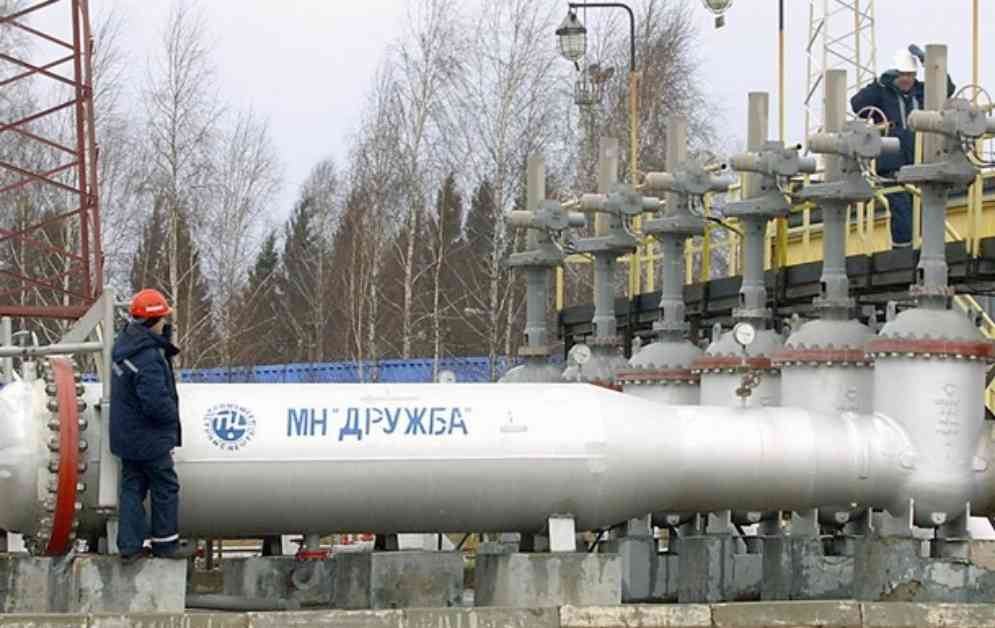On the early morning of January 30th, a fire erupted at the Druzhba oil pipeline distribution station located in Russia’s Bryansk Oblast, a region that shares a direct border with Ukraine. The critical incident was first reported by Russian Telegram channels Astra and Mash, shedding light on a potential threat to one of the most vital pipelines in the region.
Witnesses in the area recounted hearing loud explosions and witnessing the destruction of several aerial targets, creating a sense of panic and uncertainty among residents. Reports from the Russian Telegram channel Shot indicated that the drone attack occurred during a missile alert in the Bryansk Oblast, further heightening tensions in the area. Social media buzzed with accounts of explosions from residents in Klimovo and Novozybkov cities, adding to the growing concern in the region.
Klimovo, a city located a mere 10 kilometers from the Ukrainian border, and Novozybkov, approximately 20 kilometers away from the nearest point on the Ukrainian border, serve as crucial points of interest in understanding the proximity of the attack to the international border. The attempted drone attack on the Novozybkov oil pumping station of the Druzhba pipeline raised alarms about the vulnerability of such critical infrastructure to external threats.
Local sources reported seeing flames from nearby villages such as Mamai and Zamiskoye, providing a visual confirmation of the intensity of the fire near the Druzhba pipeline station. Satellite imagery further corroborated the reports, highlighting the extent of the damage caused by the attack. The Novozybkov oil pumping station, a key component of the Druzhba pipeline network, plays a pivotal role in transporting oil from Russia to Europe, underscoring its significance in energy supply and economic ties within the region.
The strategic location and importance of the Druzhba pipeline make it a prime target for potential attacks that could disrupt oil supplies and logistical operations critical for Russian military readiness, especially in the context of ongoing tensions with Ukraine. The incident serves as a stark reminder of the fragility of essential infrastructure in times of geopolitical turmoil, emphasizing the need for heightened security measures and vigilance in safeguarding critical assets.
Expert Analysis on Security Implications
Security experts and analysts have raised concerns about the broader implications of the drone attack on the Druzhba pipeline in Bryansk Oblast. According to Dr. Ivan Petrov, a geopolitical strategist specializing in energy security, the incident underscores the evolving nature of modern warfare tactics, where non-state actors can pose significant threats to critical infrastructure through unconventional means.
Dr. Petrov emphasized the importance of enhancing security protocols and implementing advanced technological solutions to mitigate the risk of future attacks on vital energy networks. He noted that the intersection of geopolitics and energy security has become increasingly complex, requiring a multidimensional approach to address emerging threats effectively.
International Ramifications and Economic Impact
The attempted attack on the Druzhba pipeline has reverberated across international energy markets, raising concerns about potential disruptions in oil supplies to Europe. As one of the major arteries for Russian oil exports to the continent, any disruption in the operations of the Druzhba pipeline could have far-reaching consequences for global energy markets and geopolitical dynamics.
Experts warn that continued instability in the region could lead to fluctuations in oil prices and supply chain disruptions, impacting various sectors of the economy. The incident serves as a wake-up call for stakeholders in the energy industry to reassess their security measures and contingency plans to address the growing threats posed by external actors.
In conclusion, the drone attack on the Druzhba pipeline in Russia’s Bryansk Oblast highlights the vulnerability of critical infrastructure to emerging security threats and underscores the need for proactive measures to safeguard energy networks. The incident serves as a stark reminder of the complex interplay between geopolitics, energy security, and technological advancements in shaping the future of global energy supply chains.

















